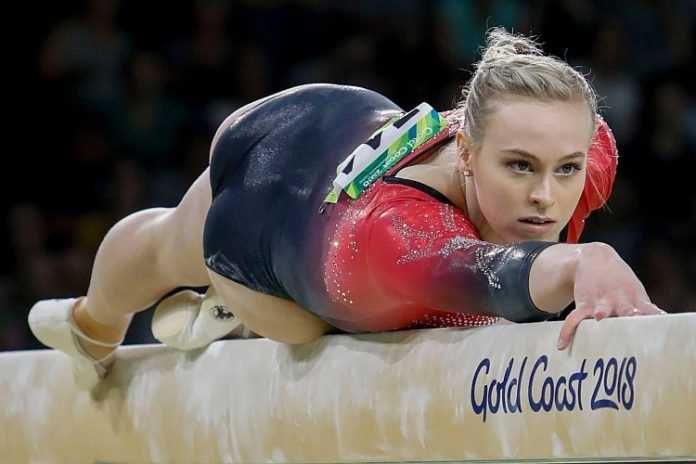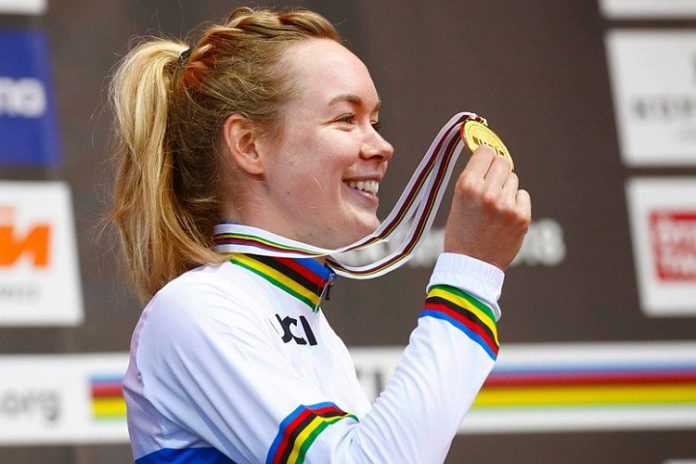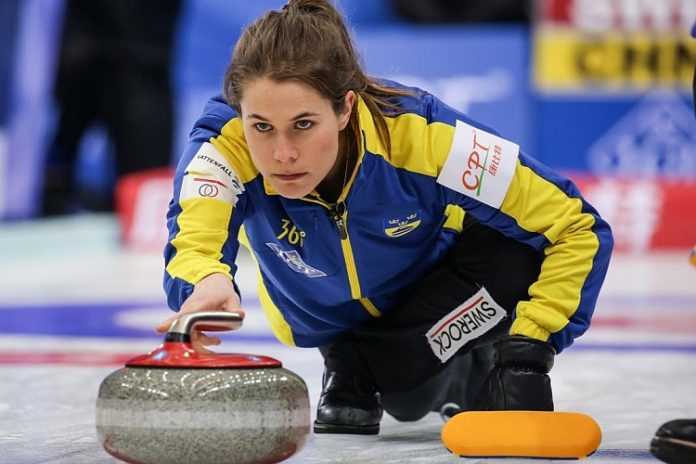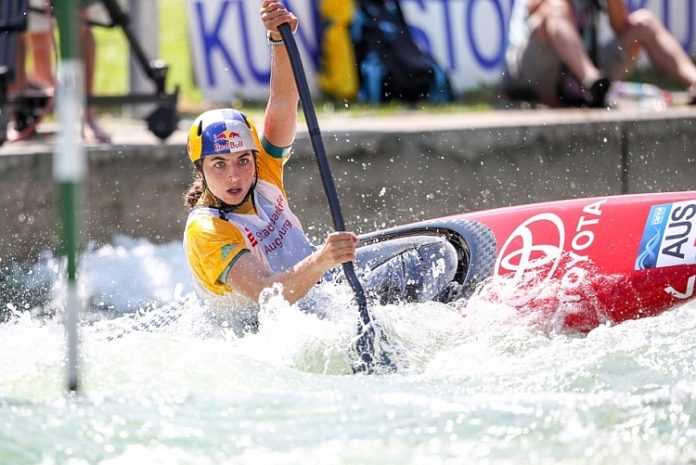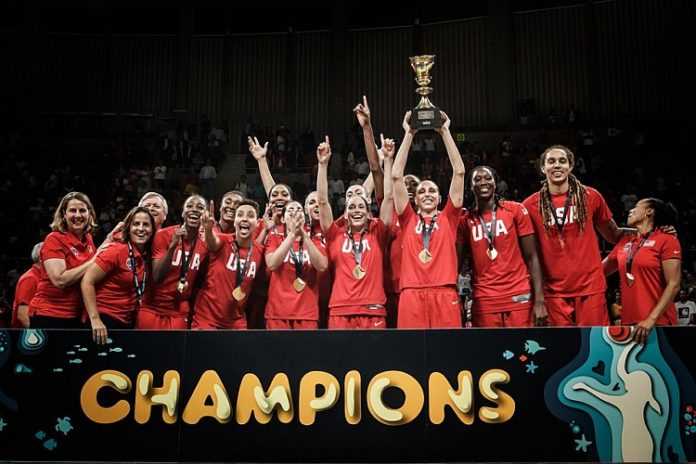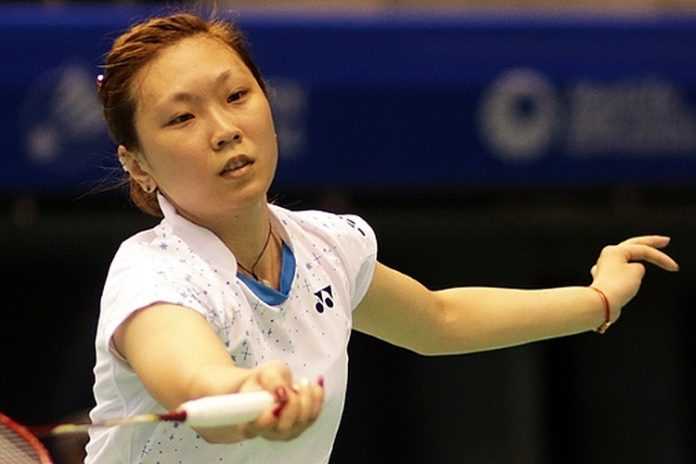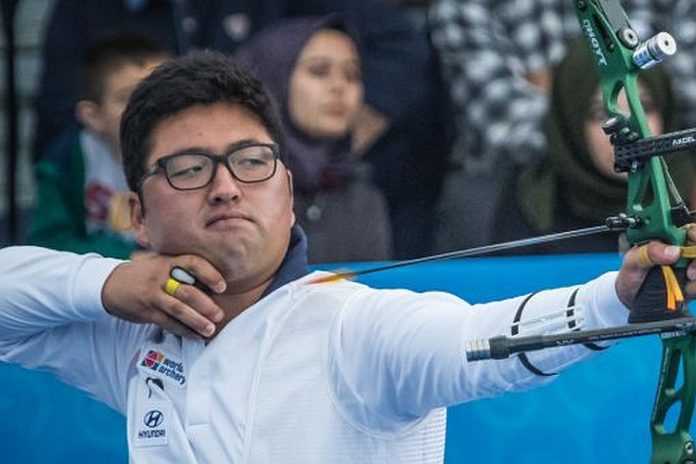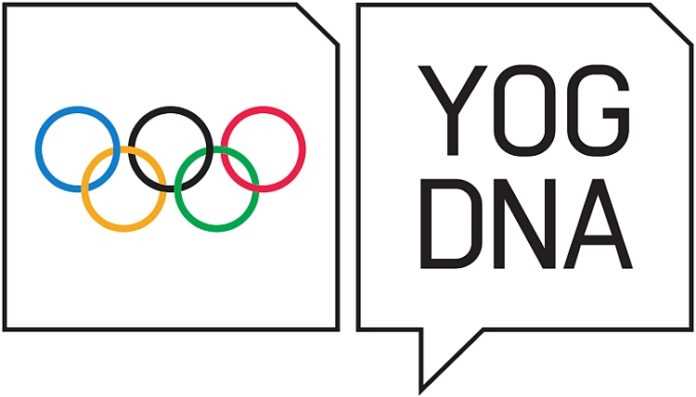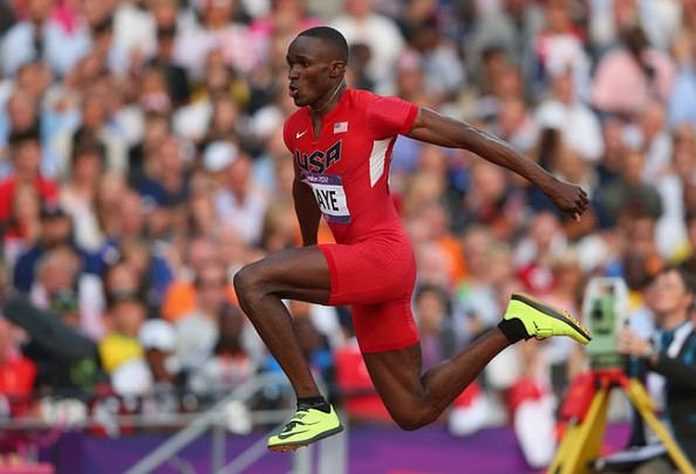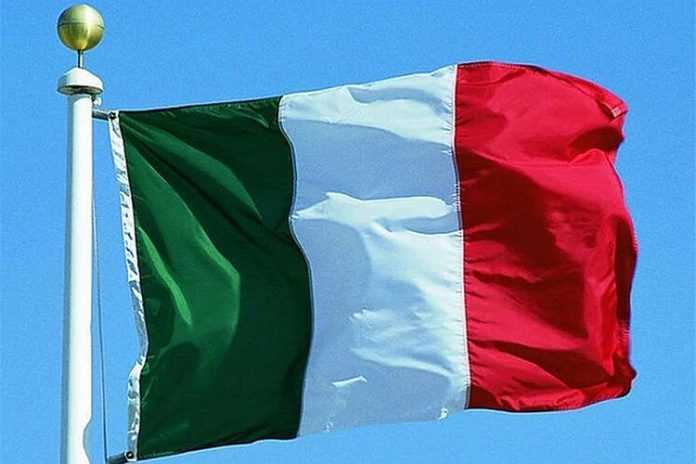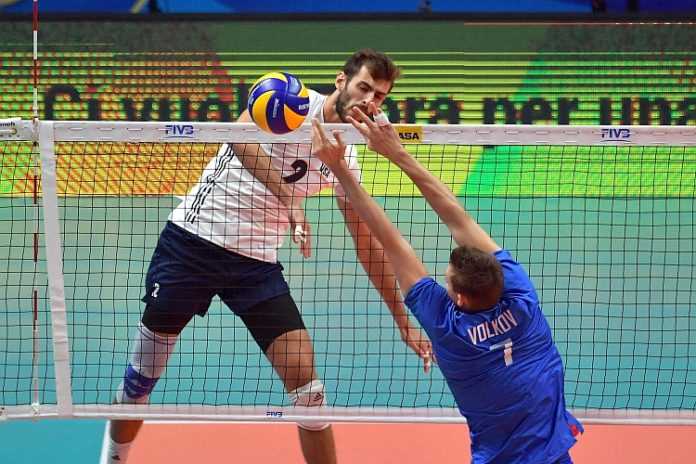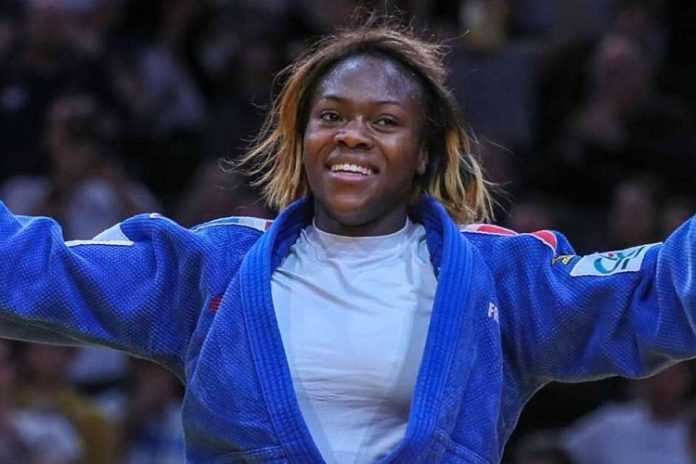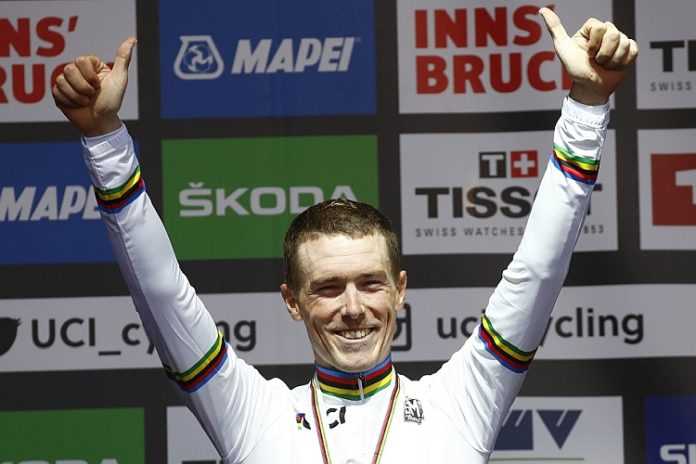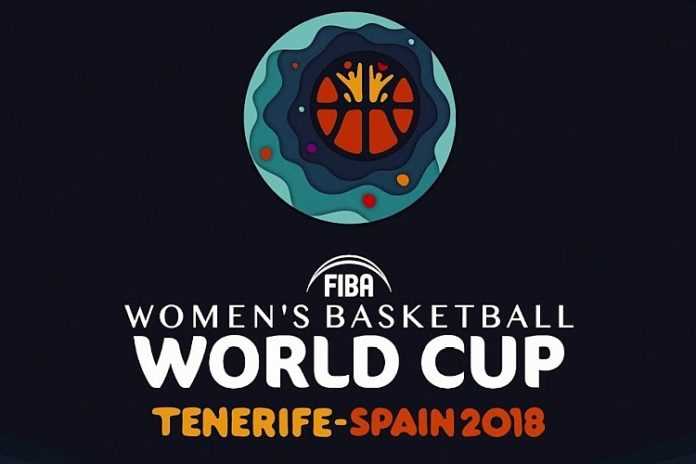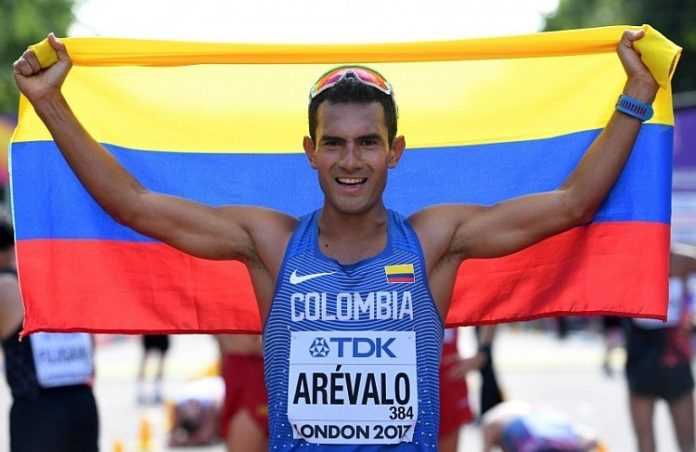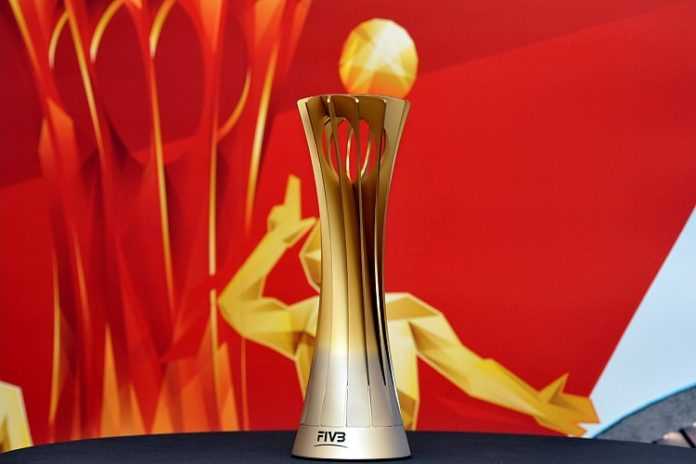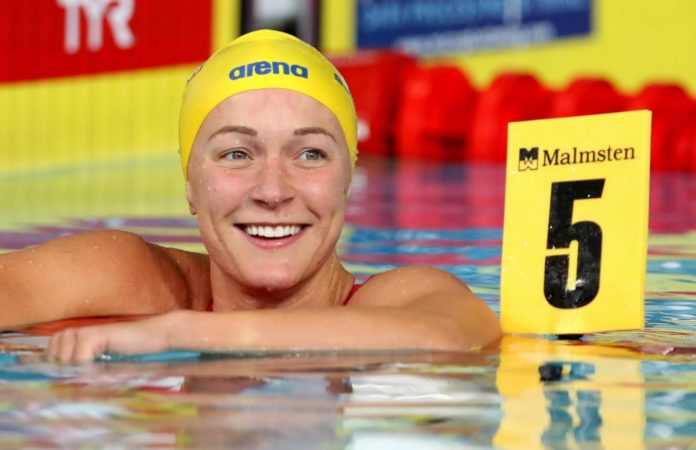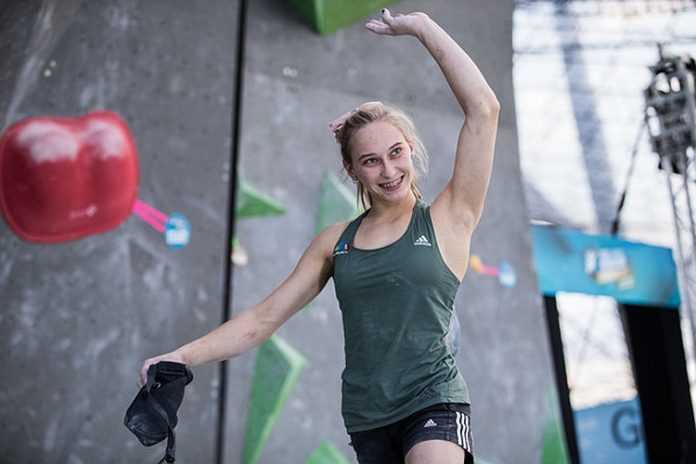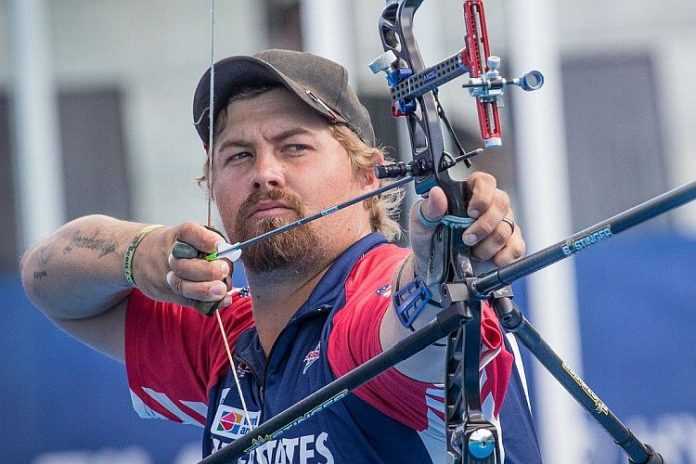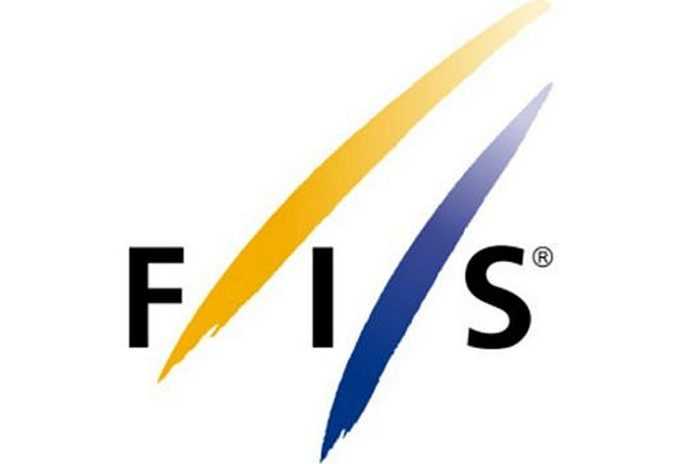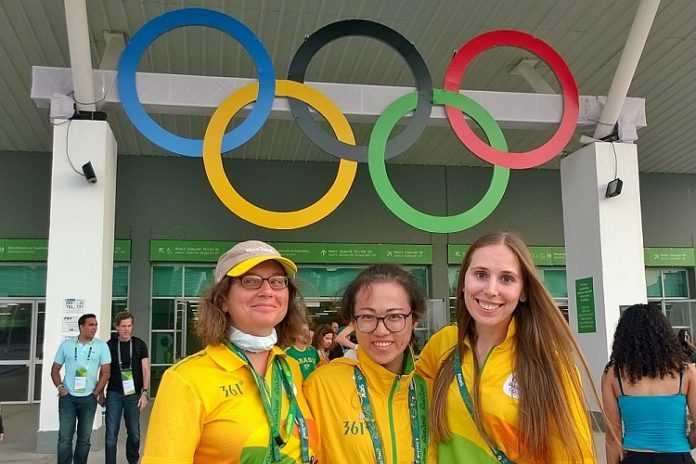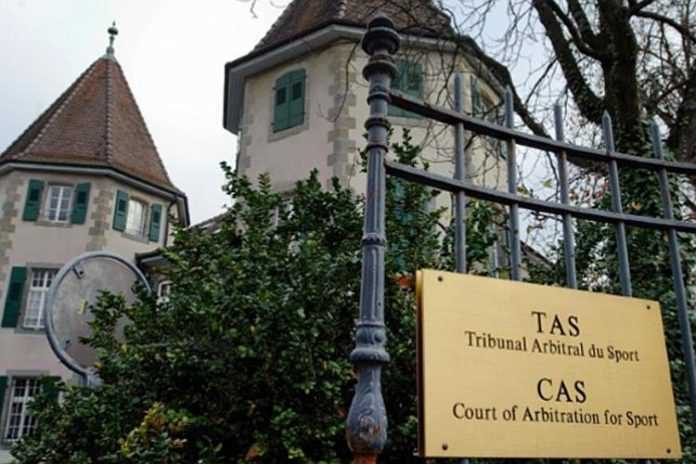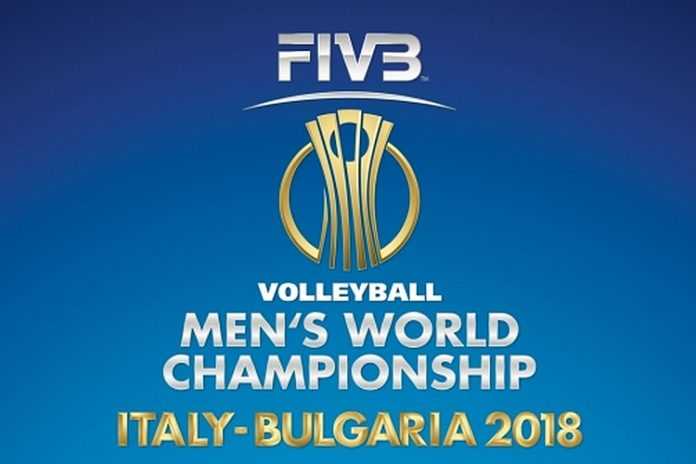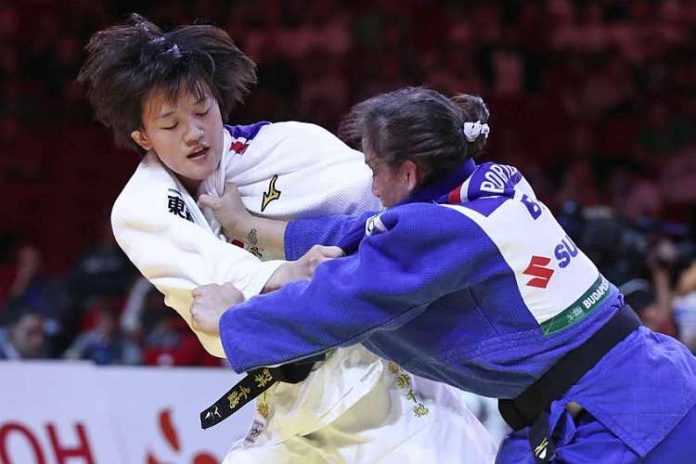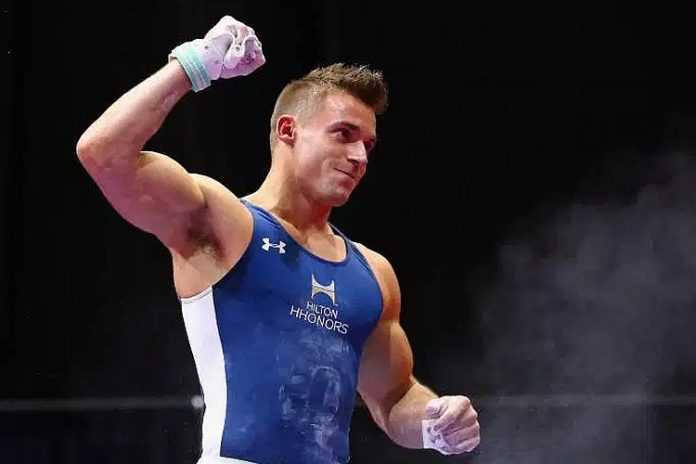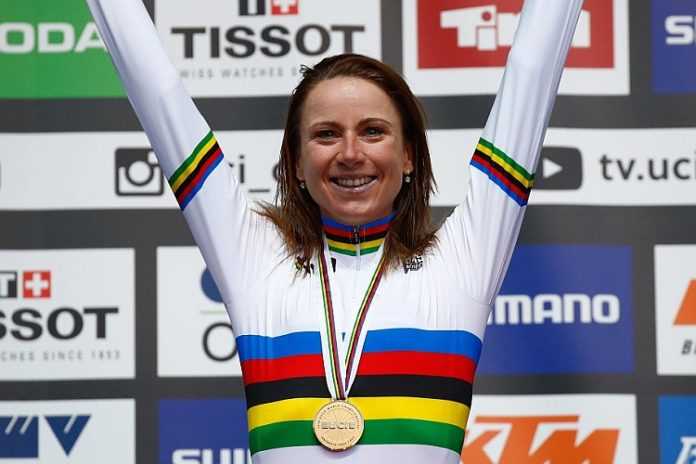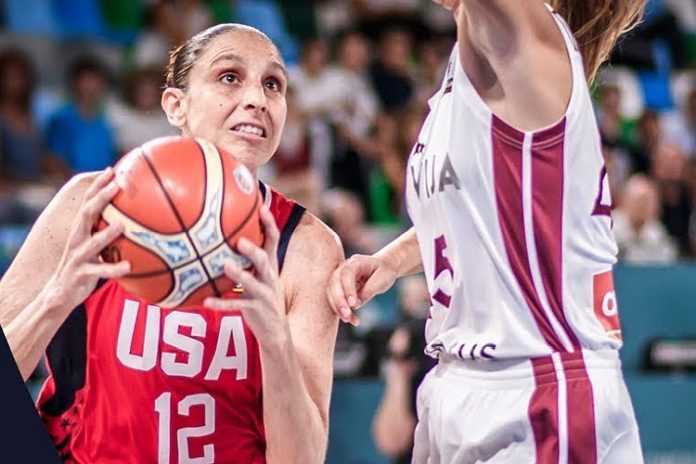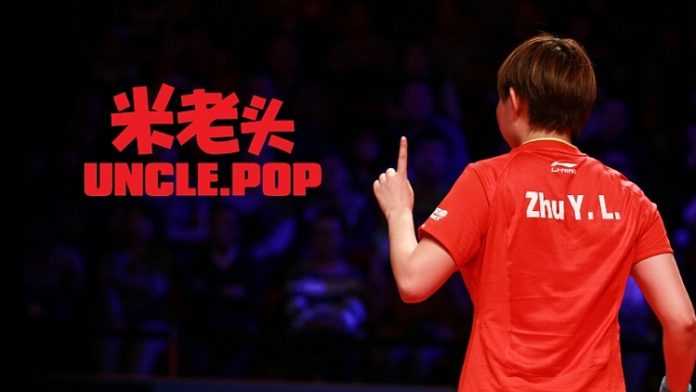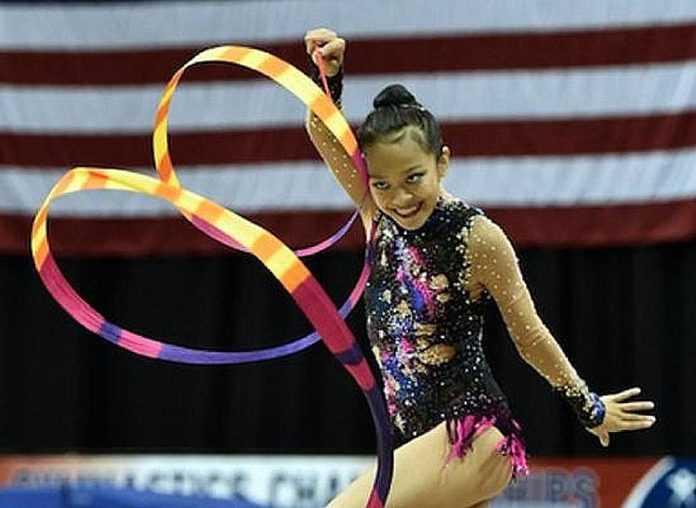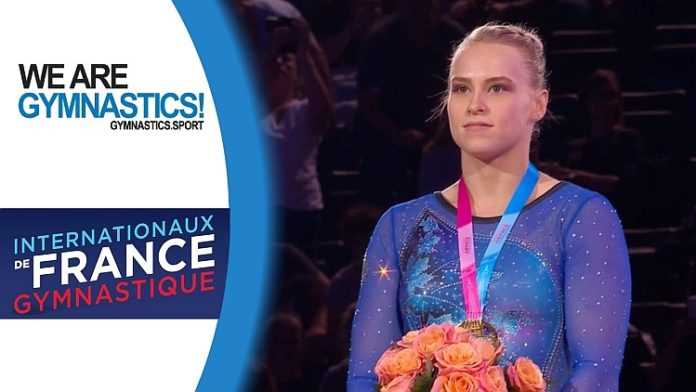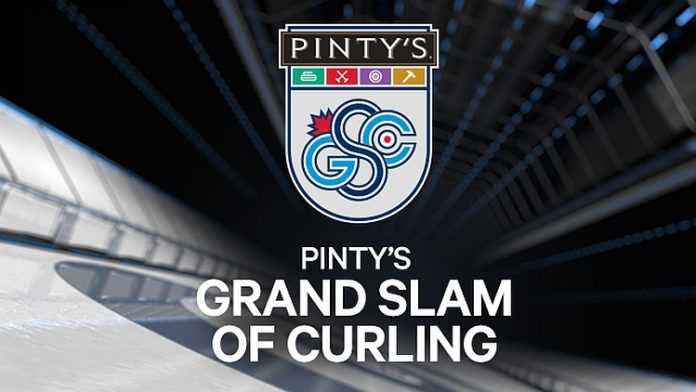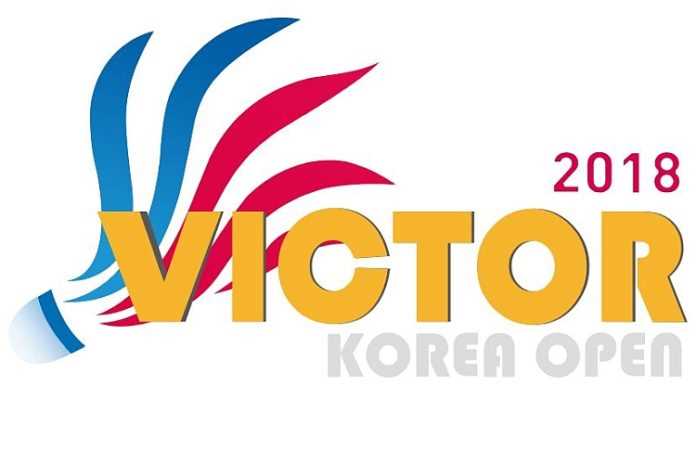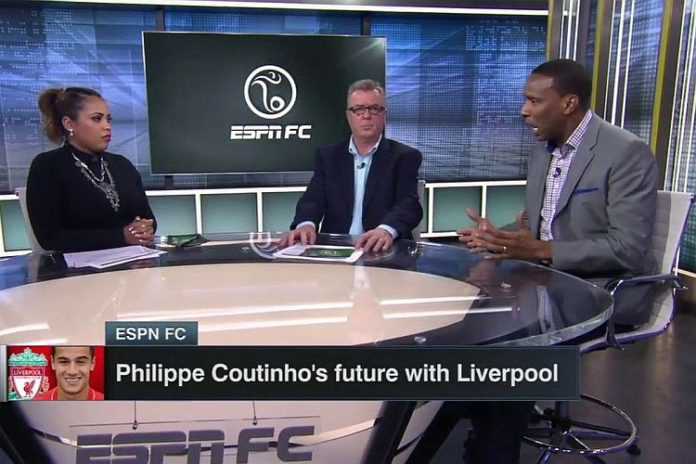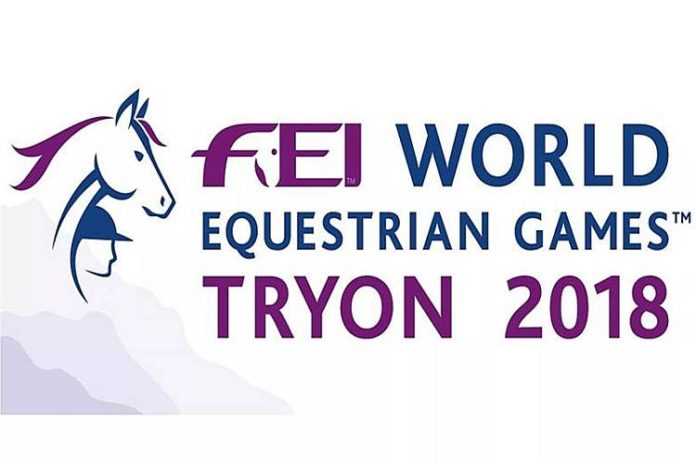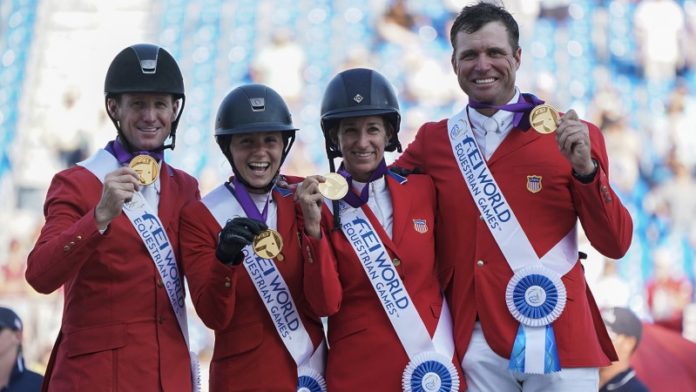Although it had a soggy start, the 2018 World Equestrian Games roared to the finish with a terrific Jumping competition at the Tryon International Equestrian Center in Mill Spring, North Carolina.
For the home crowd, the highlight was Friday’s completion of the Team Jumping, with the Swiss, United States and Germany the top three entering the final round and Sweden and the Netherlands within reach of the medals.
Riding sixth in the order, the Dutch were excellent, with only eight faults and a two-round total of 32.35. Next up was Sweden, which sat at 20.59 going in … and stayed right there as Henrik van Eckermann, Malin Baryard-Johnsson and Fredrik Jonsson were all clear. They were medalists for sure, and possible champions!
Germany followed at 18.09 coming in, and got clean rides from Simone Blum and Marcus Ehning, but Laura Klaphake earned four penalties and their total of 22.09 left them second with the U.S. and the Swiss to come.
The American quartet entered with 12.59 penalties to start and while Adrienne Sternlicht had five faults, her low score was thrown out. Devin Ryan had four penalties and Lisa Kraut had none and McLain Ward – a team gold winner with the U.S. in Athens ‘04 and Beijing ‘08 – finished with four, so the team total was – like Sweden – at 20.59.
The Swiss had trouble, piling up 17 penalties and finished with a fault total of 28.64, out of the medals in fourth place.
That left the issue of separating the Swedes and the Americans and a jump-off saw von Eckermann, Jonsson and Peder Fredricson all go clear for a score of zero. The U.S. had to match it to win, and be faster than the combined 102.73 seconds it took the Swedes to complete their round.
Ryan and Kraut were clean again, but Sternlicht had four penalties, so Ward had to be clean – and quick – for the U.S. to win. He came through with a clean ride aboard 11-year-old Clinta in 32.58 seconds to give the U.S. a clean sheet, but in 100.67 seconds to win the gold medal by 2.06!
It was the first-ever American gold in the World Equestrian Games team Jumping competition and its first world title since 1986!
Germany’s Blum came back on Sunday to win the individual Jumping gold, with a total of just 3.47 penalties, easily ahead of Swiss Martin Fuchs (6.68) and Steve Guerdat (8.00). Ward finished fourth, with 11.08.
In the non-Olympic competitions, Australia’s Boyd Exell won the Driving event, with American Chester Weber winning silver; the U.S. – with Weber, James Fairclough and Misdee Wrigley-Miller – won the Driving Team title. In the Vaulting events, the individual winners included Lambert LeClezio (FRA) and Kristina Boe (GER), the Pas de Deux was won by Silvia Stopazzini and Lorenzo Lupacchini (ITA) and Kristina Boe and Jannik Heiland (GER) won the Team title.
The overall medal table, which included the Para-Dressage events, saw Germany with the most medals (17) and the most wins (6). The U.S. had 12 total medals (3-5-4) for second place, followed by the Netherlands with 10 (5-3-2). Summaries:
World Equestrian Games
Mill Spring, North Carolina (USA) ~ 11-23 September 2018
(Full results here)
Dressage/Grand Prix Special: 1. Isabell Werth (GER, on Bella Rose), 86.246; 2. Laura Graves (USA, on Verdades), 81.717; 3. Charlotte Dujardin (GBR, on Mount St. John Freestyle), 81.489; 4. Sonke Rothenberger (GER), 81.277; 5. Patrik Kittel (SWE), 79.726; 6. Kasey Perry-Glass (USA), 78.541; 7. Edward Gal (NED), 77.751; 8. Juliette Ramel (SWE), 77.751.
Dressage/Grand Prix Freestyle: cancelled.
Dressage/Team: 1. Germany (von Bredlow-Warndl, Schneider, Rothenberger, Werth), 242.950; 2. United States (Steffen Peters, Adrienne Lyle, Kasey Perry-Glass, Laura Graves), 233.136; 3. Great Britain (Wilson, Faurie, Hester, Dujardin), 229.628; 4. Sweden, 229.456; 5. Netherlands, 223.664; 6. Spain, 220.186; 7. Denmark, 216.584; 8. Australia, 210.016.
Driving: 1. Boyd Exell (AUS), 154.14; 2. Chester Weber (USA), 163.38; 3. Edouard Simonet (BEL), 174.15; 4. Koos de Ronde (NED), 180.0; 5. Jerome Voutaz (SUI), 188.01; 6. Glenn Geerts (BEL), 189.94; 7. Thibault Coudry (FRA), 190.51; 8. Benjamin Aillaud (FRA), 190.75.
Driving/Team: 1. United States (James Fairclough, Misdee Wrigley-Miller, Chester Weber), 353.39; 2. Netherlands (B. Chardon, de Ronde, I. Chardon), 356.79; 3. Belgium (Degrieck, Geerts, Simonet), 364.09; 4. France, 378.25; 5. Germany, 409.50.
Eventing: 1. Rosalind Canter (GBR, on Allstar B), 24.6 points; 2. Padraig McCarthy (IRL, on Mr. Chunky), 27.2; 3. Ingrid Klimke (GER, on SAP Hale Bob OLD), 27.3; 4. Andrew Hoy (AUS), 29.8; 5. Sarah Ennis (IRL), 30.3; 6. Thibaut Vallette (FRA), 30.8; 7. Astier Nicolas (FRA), 31.2; 8. Tim Price (NZL), 31.2. Also: 13. Phillip Dutton (USA), 34.0; … 25. Lynn Symansky (USA), 40.3.
Eventing/Team: 1. Great Britain (Piggy French, Tom McEwen, Rosalind Canter, Gemma Tattersall), 88.8; 2. Ireland (Sam Watson, Cathal Daniels, Padraig McCarthy, Saran Ennis), 93.0; 3. France (Donatien Schauly, Maxime Livio, Thibaut Vallette, Sidney Dufresne), 99.8; 4. Japan, 113.9; 5. Germany, 118.2; 6. Australia, 135.8; 7. New Zealand, 142.2; 8. United States (William Coleman, Boyd Martin, Lynn Symansky, Phillip Dutton), 145.0.
Jumping: 1. Simone Blum (SUI), 3.47; 2. Martin Fuchs (SUI), 6.68; 3. Steve Guerdat (SUI), 8.00; 4. McLain Ward (USA), 11.08; 5. Carlos Lopez Lizarazo (COL), 12.81; 6. Max Kuhner (AUT), 12.97; 7. Lorenzo de Luca (ITA), 14.19; 8. Fredrik Jonsson (SWE), 17.23. Also: 10. Laura Kraut (USA), 18.87; 11. Adrienne Sternlicht (USA), 20.26; … 16. Eddie Blue (USA), 16.64.
Jumping/Team: 1. United States (Devin Ryan, Adrienne Sternlicht, Laura Kraut, McLain Ward), 20.59 faults (100.67 seconds); 2. Sweden (von Eckermann, Baryard-Johnsson, Jonsson, Fredricson), 20.59 (102.73 seconds); 3. Germany (Blum, Klaphake, Tebbei, Ehning), 22.09; 4. Switzerland, 28.64; 5. Netherlands, 32.35; 6. Australia, 33.32; 7. Ireland, 39.12; 8. Great Britain, 40.04.
Reining: 1. Bernard Fonck (BEL, on What a Wave), 227.0; 2. Daniel Huss (USA, on Ms Dreamy), 226.5; 3. Cade McCutcheon (USA, on Custom Made Gun), 225.0; 4. Joao Andrade C.S. Lacerda (BRA), 225.0; 5. Manuel Cortesi (ITA), 224.5; 6. Martin Muhlstatter (AUT), 224.5; 7. Thiago Boechat (BRA), 223.0; 8. Grischa Ludwig (GER), 222.5. Also: 18. Casey Dreary (USA), 219.0; 19. Jordan Larson (USA), 215.0.
Reining/Team: 1. United States (Casey Deary, Cade McCutcheon, Daniel Huss, Jordan Larson), 681.0; 2. Belgium (Verschuren, Poels, Baeck, Fonck), 671.5; 3. Germany (Ludwig, Suchting, Schoeller, Schumacher), 666.5; 4. Austria, 666.0; 5. Brazil, 664.5.
Vaulting/Men: 1. Lambert LeClezio (FRA), 8.744; 2. Jannik Heiland (GER), 8.606; 3. Thomas Brusewitz (GER), 8.533; 4. Jannis Drewell (GER), 8.509; 5. Juan Martin Clavijo (COL), 8.314; 6. Vincent Haennel (FRA), 8.220; 7. Lukas Heppler (SUI), 8.024; 8. Dominik Eder (SUI), 7.969.� Also: 14. Colton Palmer (USA), 7.678; 15. Kristian Roberts (USA), 7.263.
Vaulting/Women: 1. Kristina Boe (GER), 8.388; 2. Janika Derks (GER), 8.374; 3. Lisa Wild (AUT), 8.363; 4. Sarah Kay (GER), 8.308; 5. Nadja Buttiker (SUI), 8.253; 6. Sheena Bendixen (DEN), 8.192; 7. Katharina Luschin (AUT), 8.001; 8. Marina Mohar (SUI), 7.961. Also: 11. Elizabeth Osborn (USA), 7.734; … 13. Mary McCormick (USA), 7.361; 14. Tessa Divita (USA), 7.282.
Vaulting/Pas de Deux: 1. Silvia Stopazzini/Lorenzo Lupacchini (ITA), 9.027; 2. Jasmin Linder/Lukas Wacha (AUT), 9.013; 3. Janika Derks/Johannes Kay (GER), 8.872; 4. Theresa-Sophie Bresch/Torben Jacobs (GER), 8.707; 5. Theresa Thiel/Stefan Csandi (AUT), 8.409; 6. Daniel Janes/Haley Smith (USA), 8.244; 7. Zoe Maruccio/Syra Schmid (SUI), 7.935; 8. Svenja Lehmann/Selina Walder (SUI), 7.595. Also: 9. Kathryn Kenville/Florence Rubinger (USA), 7.538.
Vaulting/Team: 1. Kristina Boe/Jannik Heiland (GER), 26.502; 2. Nadja Buttiker/Lkas Heppler (SUI), 25.833; 3. Katharina Luschin/Lisa Wild (AUT), 25.371; 4. Silvia Stopazzini/Anna Cavallaro (ITA), 25.065; 5. Elizabeth Osborn/Colton Palmer (USA), 24.521; 6. Carola Sneekes/Claire de Ridder (NED), 22.734; 7. Lucy Phillips/ Rebecca Norval (GBR), 20.734; 8. Todd Griffiths/Jeanine van der Sluijis (CAN), 20.606.





















